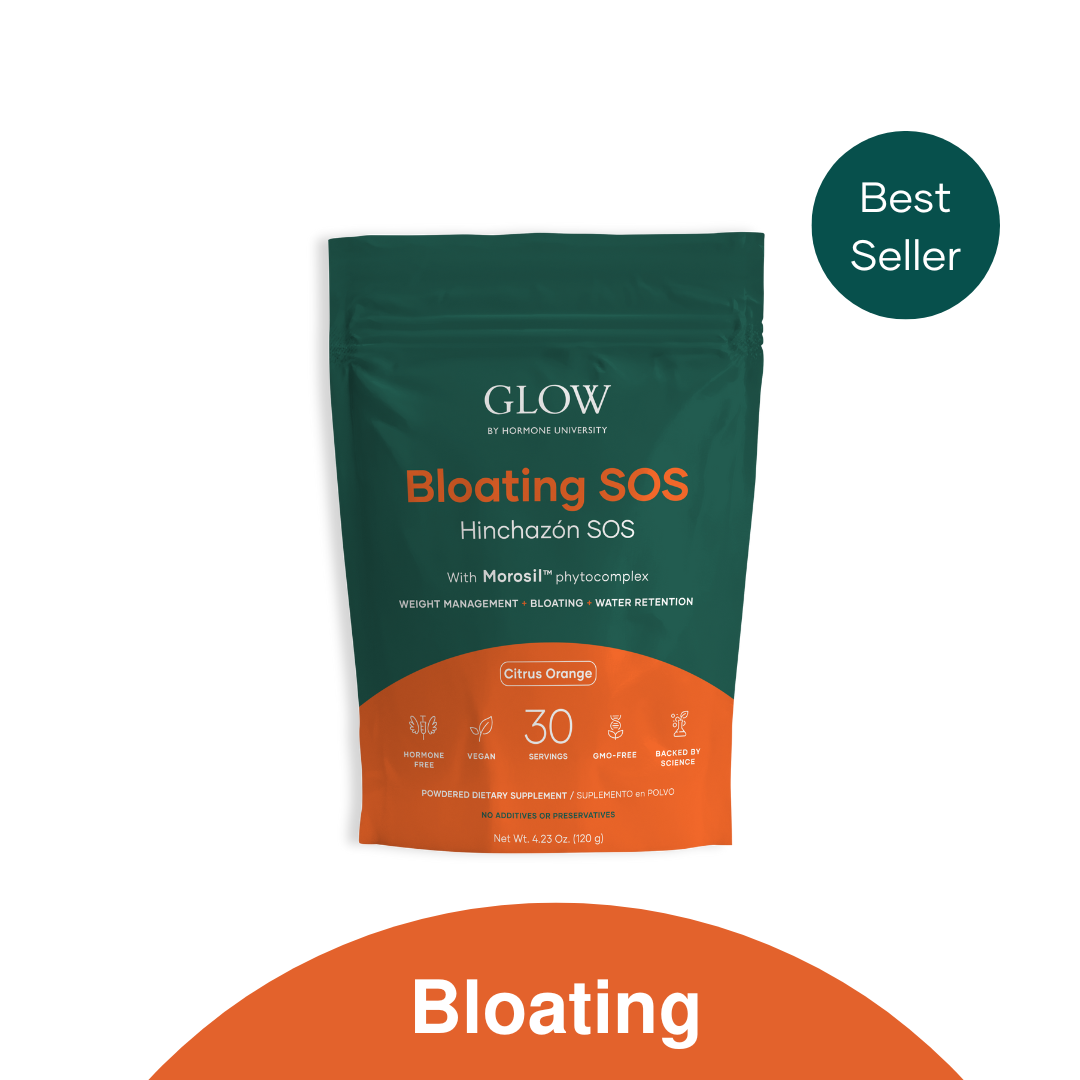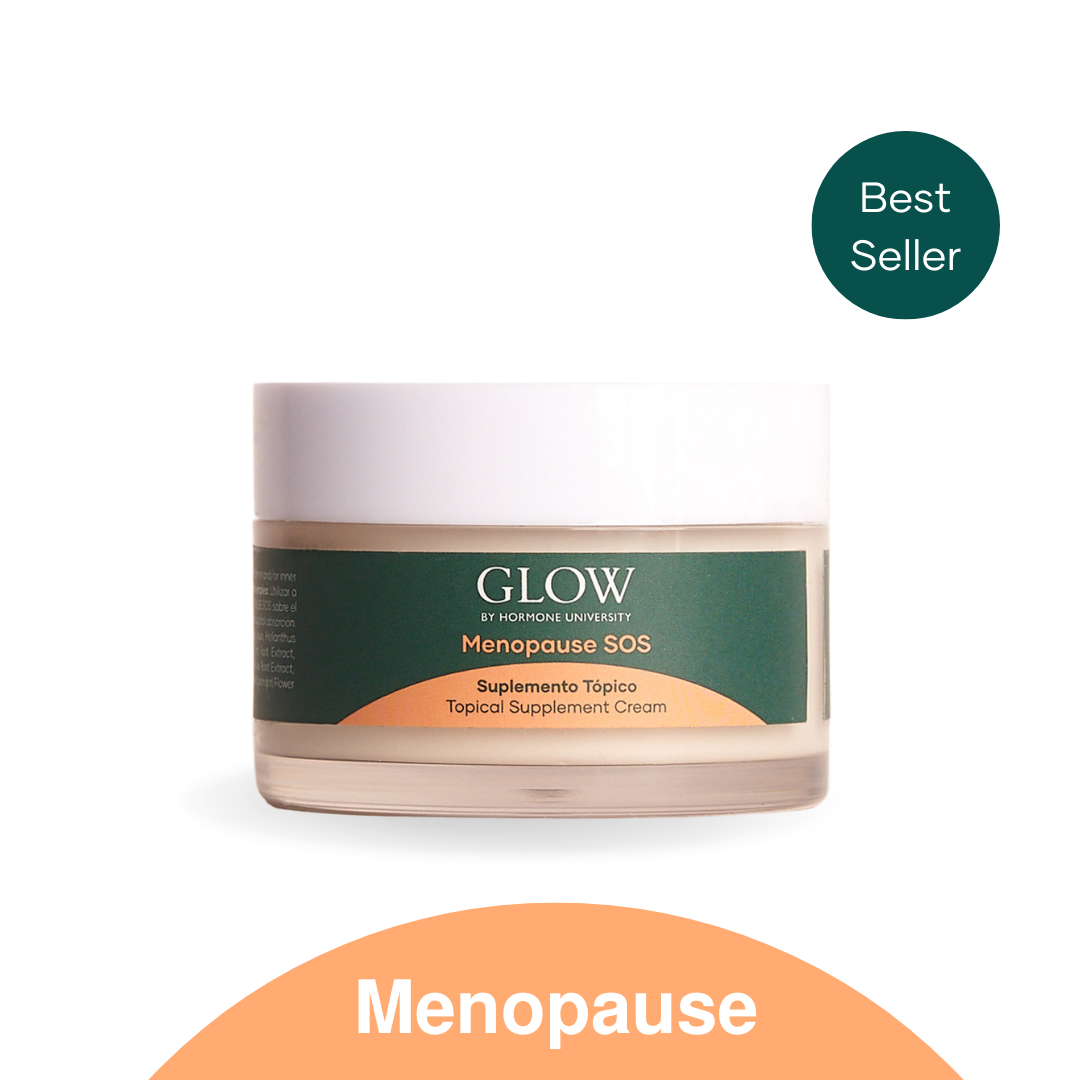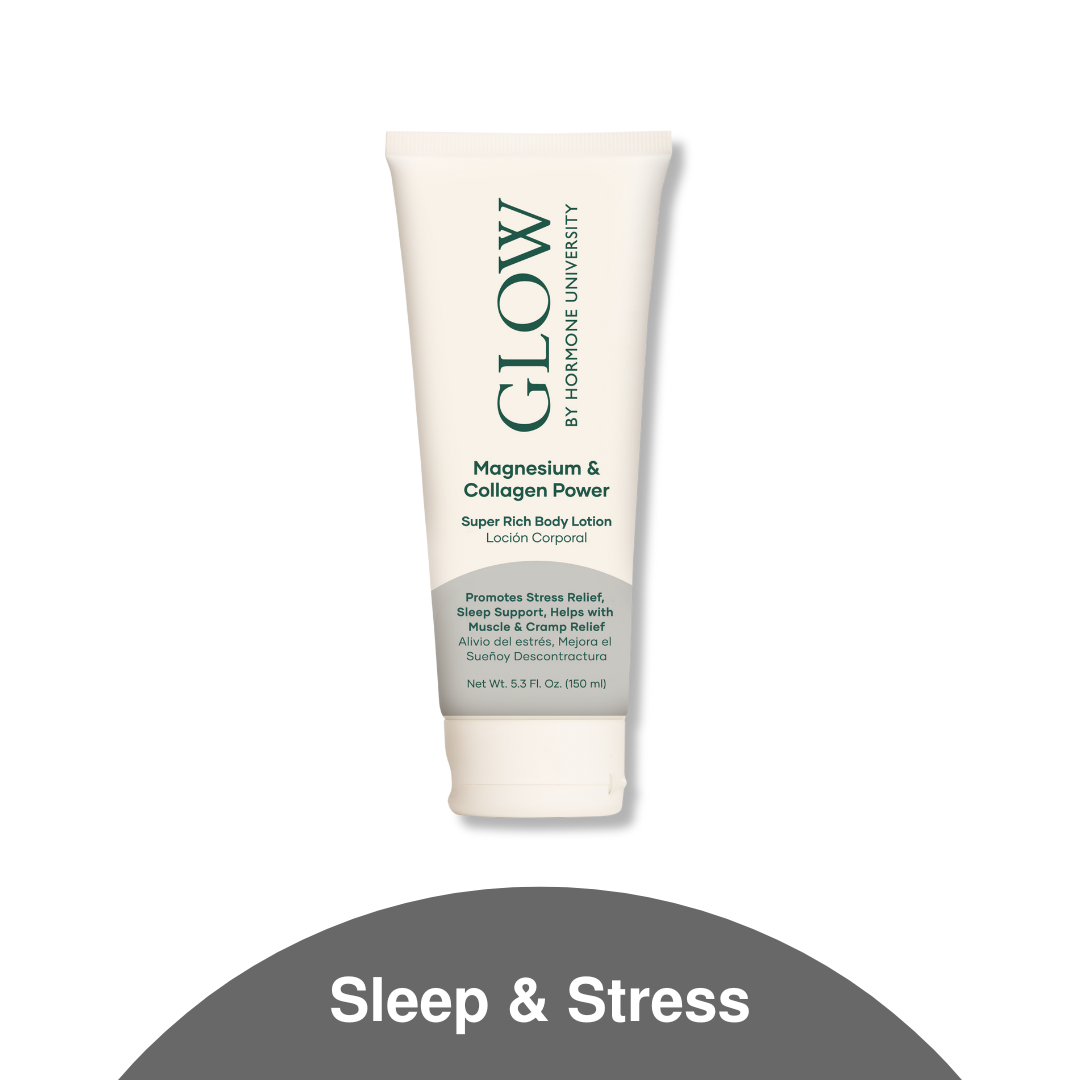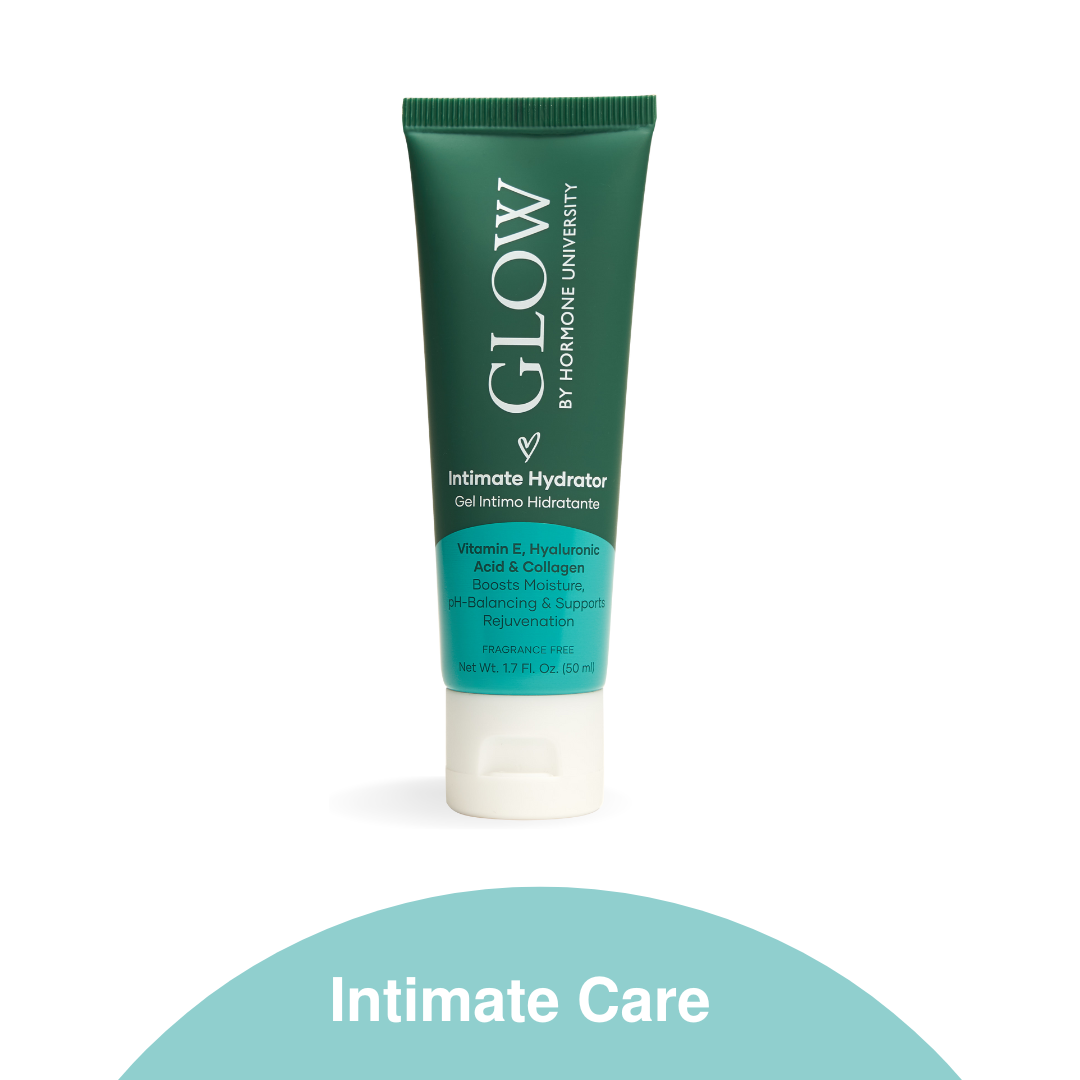If you are going through menopause and feeling like your energy has vanished, your mood is on a rollercoaster, or your brain feels foggy, you are not alone. What you might not know is that your body's need for specific nutrients has changed dramatically. A closer look at B vitamins menopause support could be a game-changer for managing these exact symptoms.
At Glow by Hormone University, we are committed to education and body literacy. We believe knowing how nutrients affect your hormones is the first step toward feeling in control. The B vitamin family plays a crucial role in how your body handles the hormonal shifts of menopause, yet many women find themselves deficient during this critical time.
Your body needs all eight B vitamins to function properly, and when you combine proper menopause nutrition with targeted vitamin supplements, you give your body the tools to navigate this transition more smoothly.

Which B Vitamins Help Most with Menopause Symptoms?
The B vitamin family is a team of eight distinct vitamins, and while all are important, certain ones are superstars for providing hormone support during menopause.
Vitamin B6 (Pyridoxine): The Mood Stabilizer
Vitamin B6 is particularly powerful for emotional well-being. A vitamin that helps your body produce serotonin, the "feel-good" neurotransmitter that regulates mood, sleep, and appetite. During menopause, as hormone levels fluctuate, B6 can help stabilize mood swings and reduce feelings of irritability and anxiety. Some research even suggests that adequate B6 levels may help reduce the severity of hot flashes.
Vitamin B12 (Cobalamin): The Energy and Brain Booster
Vitamin B12 becomes especially critical after age 50. As we age, our stomach acid production can decrease, making B12 harder to absorb from food. A deficiency can lead to profound fatigue, memory problems, and mood changes symptoms that directly overlap with menopause and can make the transition feel even harder. Ensuring you have enough B12 is fundamental for combating "menopause brain fog" and maintaining your energy.
Vitamin B9 (Folate): The Mood and Cognitive Supporter
Vitamin B9 works hand-in-hand with B12 to support brain function and regulate mood. Folate is essential for producing dopamine and serotonin, neurotransmitters that directly affect how you feel emotionally. When folate levels are low, feelings of depression and anxiety can worsen, making the emotional challenges of menopause more intense.
How B Vitamins Address Specific Menopause Challenges
Knowing which vitamins are important is one thing; seeing how they tackle your most frustrating symptoms is another.
How do B vitamins help menopause fatigue?
Menopause fatigue is not just feeling tired; a bone-deep exhaustion that sleep does not always fix. B vitamins menopause support addresses this fatigue at the cellular level. B vitamins are essential cofactors in energy metabolism, helping your cells convert the food you eat into ATP, your body's main energy currency. Without adequate B vitamins, this entire process slows down, leaving you feeling drained.
Pro Tip: To maximize nutrient absorption, a healthy gut is key. Our Bloating SOS drink contains a blend of digestive enzymes that help your body break down food and absorb nutrients including B vitamins more efficiently, ensuring you get the most from your diet and supplements .
Can B vitamins help with menopause mood swings?
Yes, B vitamins play a crucial role in emotional stability. The connection is so strong that deficiencies are sometimes mistaken for primary mood disorders.
-
Vitamin B6 helps produce GABA, a neurotransmitter that calms your nervous system, making you feel more relaxed and less reactive to stress.
-
Vitamin B3 (Niacin) and Vitamin B1 (Thiamine) also contribute to the production of serotonin and are known for their positive effects on mental attitude and anxiety reduction.
Can B vitamins reduce hot flashes?
While not a direct cure, B vitamins can help reduce the frequency and intensity of hot flashes by supporting your body's stress-response system.
-
Vitamin B5 (Pantothenic Acid) is vital for adrenal health. Your adrenal glands take over some hormone production after your ovaries slow down. Supporting these glands with B5 can help stabilize hormone levels and reduce hot flash triggers.
Your Action Plan: A Hormone-Friendly Diet & Supplement Strategy
A successful B vitamins menopause protocol involves a two-pronged approach: optimizing your diet and considering smart supplementation.
Getting B Vitamins from Food
A solid menopause nutrition plan is your foundation. Focus on incorporating these foods:
|
B Vitamin |
Top Food Sources |
|
B6 (Pyridoxine) |
Chickpeas, salmon, tuna, potatoes, bananas |
|
B12 (Cobalamin) |
Clams, beef liver, salmon, beef, milk, yogurt |
|
B9 (Folate) |
Dark leafy greens (spinach, kale), asparagus, lentils, avocado |
|
B5 (Pantothenic Acid) |
Avocado, mushrooms, sweet potatoes, chicken |
Are B Vitamin Supplements Safe During Menopause?
For most women, taking a high-quality B-complex supplement is safe and effective. Because B vitamins are water-soluble, your body typically excretes what it does not use.
Checklist for Choosing a B-Complex Supplement:
-
Third-Party Tested: Look for a seal from NSF, USP, or a similar organization to verify purity and potency.
-
Contains All 8 B Vitamins: A complex ensures the vitamins can work together synergistically.
-
Uses Methylated Forms: Look for "methylcobalamin" (B12) and "methylfolate" (B9). These forms are more bioavailable, meaning your body can use them more easily.
-
Appropriate Dosage: Consult your healthcare provider for a dosage that matches your needs. Do not exceed the recommended upper limits, especially for B6.
Beyond B Vitamins: A Holistic Approach to Hormone Support
While B vitamins menopause support is crucial, they are part of a larger picture. Menopause symptoms stem from hormonal decline, and addressing that root cause provides more comprehensive relief. B vitamins help your body manage the effects of hormonal shifts, while other solutions can help balance the hormones themselves.
A holistic strategy combines nutritional support with targeted topical solutions that provide direct hormone support.
Product Section: Glow by Hormone University
At Glow, we believe in working with your body. Our solutions are co-developed with Dr. Elizabeth Poynor, an eminent OBGYN, to provide clean, science-backed, and hormone-safe support .
Positioning: While B vitamins are your body's "support crew," our topical creams are like the "stage managers," helping to orchestrate your hormones more directly.
Feature:
-
Product: Menopause SOS Cream
-
Feature: Contains Wild Yam and Vitex, ingredients known to help the body balance hormones naturally.
-
Benefit: Directly targets the root cause of hot flashes, night sweats, and mood swings, providing relief that vitamin supplements alone may not achieve. Its topical format ensures fast absorption without gut irritation.
-
Product: Super Rich Magnesium Body Lotion
-
Feature: Formulated with pure Zechstein magnesium, a mineral often depleted alongside B vitamins during times of stress.
-
Benefit: Helps calm the nervous system, reduce muscle cramps, and promote deep, restorative sleep tackling the anxiety and insomnia that B vitamin deficiencies can worsen.
The Ultimate Solution: A Synergistic System
For women seeking comprehensive relief, our Ultimate Menopause Relief Bundle combines our best solutions. It includes:
-
Menopause SOS Cream: For foundational hormone support.
-
Bloating SOS: To improve digestion, nutrient absorption, and energy.
-
Intimate Hydrator: To combat vaginal dryness, another common menopause symptom.
This bundle, combined with a strong menopause nutrition plan rich in B vitamins, creates a powerful, multi-faceted approach to help you feel your best.
Troubleshooting & Edge Cases
-
If you take B vitamins and still feel fatigued: Your issue may be iron or vitamin D deficiency, or an underactive thyroid. Consult your doctor for a full blood panel.
-
If B vitamins upset your stomach: Take them with a meal. If problems persist, consider a lower dose or a different brand. Topical solutions like our Menopause SOS Cream bypass the gut entirely.
-
If you are vegan or vegetarian: You are at high risk for B12 deficiency, as it is found almost exclusively in animal products. A B12 supplement is non-negotiable.
Frequently Asked Questions (FAQs)
Q1. Which B vitamin is most important for menopause?
While all are important, Vitamin B12 and Vitamin B6 are often highlighted for their significant impact on energy, brain function, and mood regulation during menopause.
Q2. How much B6 should I take for hormones?
The RDA is 1.5 mg for women over 50, but for symptom management, doses of 10-25 mg are common. Do not exceed 100 mg per day without medical supervision to avoid nerve-related side effects.
Q3. Can B vitamins stop hot flashes completely?
They are unlikely to stop them completely but can reduce their frequency and severity by supporting your adrenal glands and nervous system. For more direct relief, consider a product like our Menopause SOS Cream.
Q4. What does B12 do for menopause?
B12 is critical for creating red blood cells (for energy), maintaining nerve health (for brain function), and synthesizing mood-regulating neurotransmitters. A deficiency can mimic or worsen menopause symptoms like fatigue and brain fog.
Q5. How quickly will I feel better after taking B vitamins?
You may notice an improvement in energy levels within a few weeks. Mood and cognitive benefits can take 1-2 months of consistent use to become apparent.
Q6. Are there any risks to taking B vitamin supplements during menopause?
They are generally very safe. The primary risk is taking an excessively high dose of B6 over a long period. Always stick to recommended dosages unless advised otherwise by a doctor.
Q7 Why does my urine turn bright yellow when I take B vitamins?
A harmless and common side effect caused by your body excreting excess Vitamin B2 (riboflavin). A sign the supplement is being absorbed.
Q8. Can I get all the B vitamins I need from my diet?
It is possible but can be challenging, especially for B12 if you limit animal products. A well-rounded menopause nutrition plan is your first line of defense, with vitamin supplements filling any gaps.














